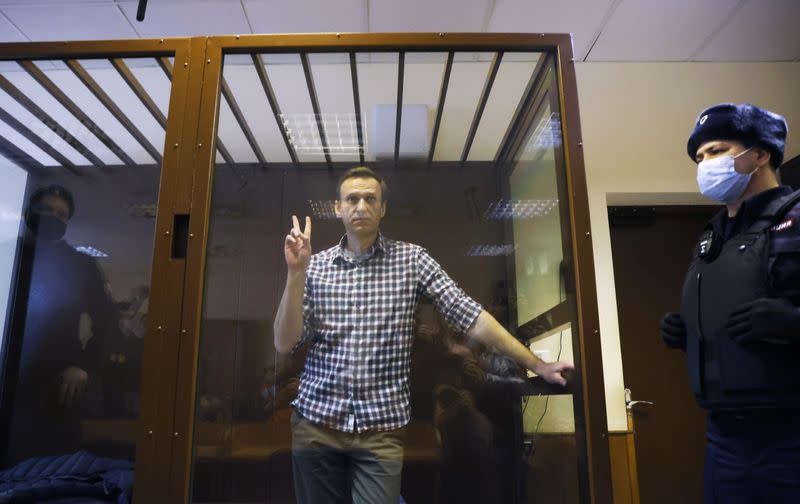MOSCOW (Reuters) – Amnesty International no longer considers Kremlin critic Alexei Navalny a “prisoner of conscience” because of previous comments he made that qualify as a defense of hatred, the group said.
Amnesty, however, still believes that Navalny should be released from prison, that he has committed no crime and that he is being pursued for his campaign and open criticism of President Vladimir Putin and his government, he said.
The 44-year-old Russian opposition politician was flown to Germany last August to recover from a near-fatal poisoning in Siberia with what many Western countries have said are a nervous agent.
He was arrested on his return to Russia last month and sentenced to prison for probation violations that he considered forged. He should spend just over two and a half years behind bars. The West demanded his release; Russia says this is meddling.
“Amnesty International has taken an internal decision to stop referring to … Navalny as a prisoner of conscience regarding comments he made in the past,” the group said in a statement sent to Reuters on Wednesday.
“Some of these comments, which Navalny did not publicly denounce, reach the threshold of defending hatred, and this goes against Amnesty’s definition of a prisoner of conscience,” he added.
Amnesty, which named Navalny as a “prisoner of conscience” on January 17 after his arrest, did not specify what comments he referred to and said he was unaware of similar pronouncements he had made in recent years.
Navalny, who campaigned against official corruption, was criticized for previous nationalist statements against illegal immigration and for participating in an annual nationalist march several years ago.
In a 2007 video, he called for the deportation of migrants to prevent an increase in extreme right-wing violence. “We have a right to be (ethnic) Russians in Russia. And we will defend that right,” he said in the video.
Navalny could not be reached for comment because he was in prison. His allies protested Amnesty’s action on Twitter.
Alexander Golovach, a lawyer with the Navalny anti-corruption group FBK, said he was relinquishing the previous “prisoner of conscience” status that Amnesty gave him in 2018 to protest.
Ivan Zhdanov, a Navalny ally, said: “The procedure for assigning and revoking Amnesty International’s status has proved extremely shameful.”
(Reporting by Tom Balmforth; Editing by Nick Zieminski)
